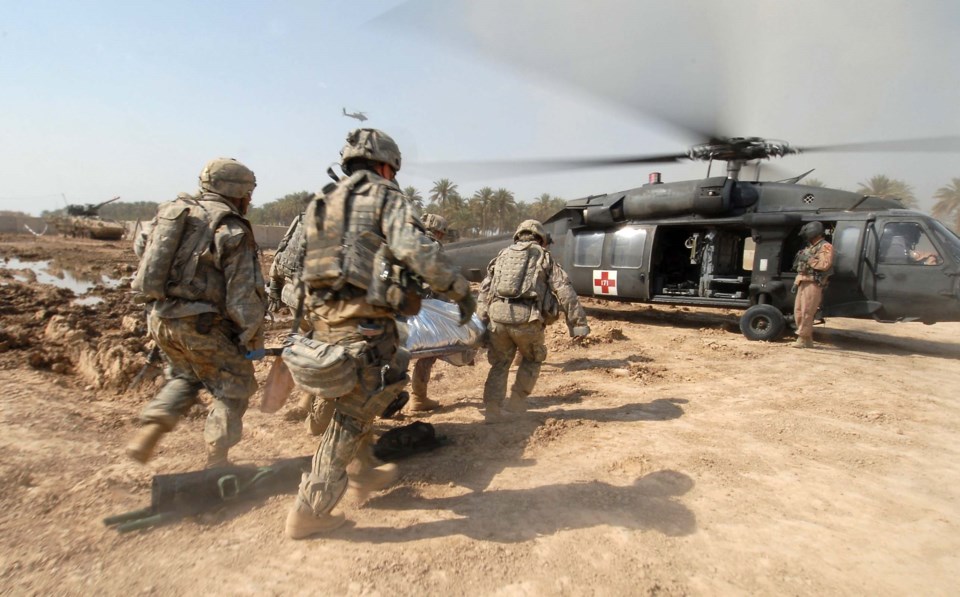As I type this, it’s been exactly three weeks since “drones,” more like cruise missiles, attacked the largest oil processing facility in the world, Saudi Arabia’s Abqaiq processing facility. A lot of fingers are pointing at Iran at this point, but so far, cruise missiles are not.
That could change tomorrow, but right now, things have been quiet.
When I look up the price of West Texas Intermediate on this day, astonishingly, it is just US$52.81. That’s more than $2 lower than it was the day before the attack.
What sort of crazy world is this? An attack temporarily puts out of commission 5.7 million barrels per day of oil production, which equates to roughly the same percentage of oil production on a global scale, and the price drops three weeks later?
This is precisely what Harold Hamm, CEO and majority owner of North Dakota’s largest oil company, Continental Resources, predicted in 2010 at the Williston Basin Petroleum Conference which I attended. I’ve quoted his speech numerous times, because it was so significant. It’s even moreso today.
Hamm said, “A reporter asked me the other day what’s the big deal about energy independence. It means you don’t have to send your kid over there to get killed!”
Over there is the Middle East, where the U.S. was heavily involved in the Iraq War at the time.
Remember, that was 2010. Now, the United States has essentially achieved just what Hamm spoke of – energy independence. In 2020, it will export more oil than it imports. The U.S. Energy Information Administration (EIA) reported on Oct. 3, “U.S. exports of crude oil rose to average 2.9 million barrels per day (bpd) in the first half of 2019, an increase of 966,000 bpd from the first half of 2018. U.S. crude oil exports also set a record-high monthly average in June 2019 at 3.2 million bpd.”
In one year, their imports fell 1.9 million barrels per day – in just one year, from 2018 to 2019, to 4.2 million barrels per day.
Just to put that in perspective, in 2018, Canada exported 3.5 million barrels per day to the U.S. 96 per cent of all our crude oil exports, according to Natural Resources Canada. Our total production in 2018 was 4.6 million barrels per day, including condensates and pentanes plus.
The EIA expects the U.S to be a net energy exporter in 2020. That, folks, is essentially energy independence.
In recent weeks I’ve taken to watching numerous videos on YouTube featuring Peter Zeihan. He’s an American geopolitical strategist who gets invited to do speeches all over the place, talking about demographics and geopolitics. Look him up. His presentations, and I’ve watched at least 10, are about an hour long, and about 85 per cent the same. The rest is structured for his audience, be they farmers in the U.S. Midwest or, in one case, folks in Alberta. I went back several years into these video archives to see if what he spoke about several years ago has borne fruit. It has.
Zeihan has written the books The Accidental Superpower: The Next Generation of American Preeminence and the Coming Global Disorder, The Absent Superpower: The Shale Revolution and a World Without America, and on Nov. 19 will release, Disunited Nations: The Scramble for Power in an Ungoverned World.
A key focus in his presentations has been the importance of shale oil production in the United States, and how it will mean, in 2020, the U.S. really doesn’t need oil from the rest of the world. And he said this before the Saudi oil processing centre for the largest oilfield in the world went up in flames.
So now, today, the U.S. has essentially shrugged. While Trump has talked tough, the reality it there is not a massive mobilization like we saw in 1990. That’s when Iraq invaded Kuwait, and was threatening to then conquer the very same Ghawar oilfield targeted in the Sept. 14 attacks. Don’t forget, Canada sent CF-18s, naval ships and a field hospital to take part in what became Desert Storm in early 1991.
Zeihan speaks at length about the global order established post-World War II at Bretton Woods, an order which allowed for the unrestricted global trade of goods, with the oceans kept free by the U.S. Navy.
But now, only country which has the ability to hold up the global order, is no longer interested in doing so, Zeihan says. “The Americans really don’t care. It’s not their trade. And for the most part, it’s not even their allies. It’s nothing less than the end of the world that we know,” he said this past March.
The Canadian oilpatch has, for five years now, prayed for something to bring oil prices back up. While US$100 per barrel would be stellar, we’d be quite happy with US$75. And in hushed tones, many wouldn’t feel too bad about a Middle Eastern war if it brought those prices back up.
Yet here we are – the opening strike has already taken place three weeks ago, and still no war. And no real impact on world prices save for a two-week blip. The Brent price, which is fundamentally the world oil price for tanker-based oil, is US$58.37, almost two full dollars below what it was before the attack on Sept. 14. Brent only spiked to US$69.02 after the attacks, and fell since then.
A lot of this calm in the markets can be attributed to the release of strategic petroleum reserves, and the fact the Saudis have been able to recover fairly quickly from it. But more importantly, the drumbeats of Americans going to war are almost deafeningly silent. They simply don’t need to.
The shale oil revolution has surely changed the world. And as a result, Americans, and to a lesser extent, Canadians, no longer need to send their kids “over there to get killed.”
Ěý
Brian Zinchuk is editor of Pipeline News. He can be reached at [email protected].




